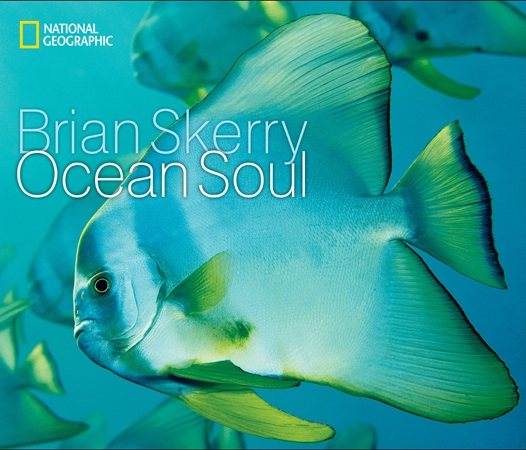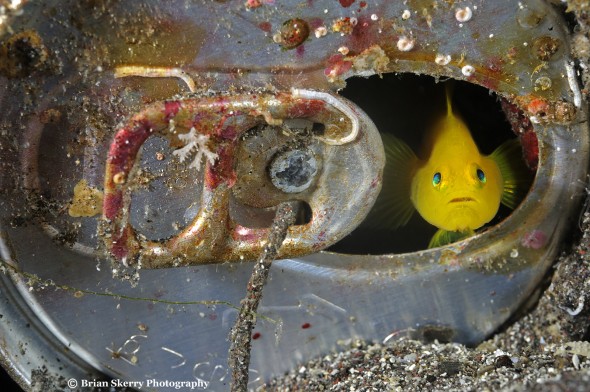This week, Book Hook features a series of exclusive Seamonster interviews with award-winning underwater photographer, Brian Skerry.
Brian has been taking photographs underwater for thirty years and these days you’ll see his pictures regularly gracing the pages of National Geographic Magazine. His new book, Ocean Soul, features a breathtaking selection of his work, displayed in stunning large format. As well as pictures, Ocean Soul gives insight into the trials and tribulations of being an underwater photographer and offers up Brian’s reflections on an extraordinary career exploring the ocean.
Today, I chat with Brian about his book, the books that inspired him, and I pick out some of my favourite images.
Helen: Most often people will see your photographs online or in magazines. Why is it important to you to produce printed books of your work?
Brian: Seeing photographs on a computer or on an ipad, or tablet, is actually a very compelling way to look at images. They glow in a way that a printed page can’t do. That been said, it’s very important for me to do a book like Ocean Soul, because I believe that human beings do have this physical contact with a book that is unique. I think there’s something very special about sitting, in a quiet place perhaps, in your home, with a book that you can hold in your hands, rest in your lap, and take in, in our own time.
You can open the book and see the colours and details, your eye can wander around the page and look at all the little hidden bits that you may not see so much when you are at a computer.
Also, I read some time ago that most working photographers today can point back to a single book that inspired them to pursue photography as a life’s works. Even though I’ve done several books, Ocean Soul is the first big photo book, and a big part of why I wanted to do that was hopefully to inspire future photographers. I wanted to inspire them not only with my photographs but also with my writing, with the words about what it was like to have these experiences with animals in the ocean, or what it was like to be in the field for prolonged periods of time, both the good things and struggles.
Helen: Were you inspired by a particular book?
Brian: When I think back on my childhood, which is where I began to be inspired to be an ocean explorer, I can remember watching Cousteau documentaries, and reading National Geographic magazines and being inspired by many explorers but particularly the ocean explorers. I first started diving when I was about 15 years old, and within a year or two of becoming a certified diver I attended a diving conference in Boston and I saw underwater photographers and documentary filmakers presenting their work and it was there that I had this epiphany when I realised how I would be an ocean explorer, I would do it with a camera.
It was around that time that I found this book by a photographer named Bill Curtsinger. He was a National Geographic photographer in those days and was doing a lot of underwater photography that was quite pioneering, he was one of the first guys to photograph large whales, and he was doing stuff under Arctic and Antarctic ice.
It wasn’t necessarily colourful coral reefs, it was more netherworld, dark and spooky kind of stuff, but it really spoke to me in a way that nothing else had. His book was called Wake of the Whale [words by Kenneth Brower] , it was a large format book that I still have to this day. I later became friends with Curtsinger, he was the guy who got me into National Geographic. I absolutely think that was a big inspiration, there were many, but I can definitely point to his book.
Read on to find out which of Brian’s photographs are my favourites, and how he just loves to get emails…
Helen: If I had to narrow down my personal favourites in your book it would probably be the leatherback turtle (these are the first images anyone’s ever taken of a leatherback swimming in the wild), as well as your sea angel and sea butterfly shots, and the tiny goby poking its head out of a a Coke can. These to me encapsulate the unseen, hidden world of the oceans. It must be a great privilege to reveal to people these unseen worlds.
Brian: Absolutely so, Helen, and I think that’s one of the big motivators for me today. So much of my life I seem to operate in a vacuum. I spend 8-9 months a year in the field and I’m out in some remote place. I’m not necessarily hearing from the people who are looking at my pictures, and to be able to hear – like you telling me just now about your favourite images – that is very motivating for me because I know that there’s an audience out there that’s looking at this stuff and hopefully caring.
What I enjoy most is getting emails from people who say I’ve inspired them to either follow a similar career, I get messages every week form people who want to do what I do and I think that’s tremendous, and I get messages from all kinds of people who say “you’ve opened my eyes to another world”, or “you’ve shed light on struggles that sharks are having” or “I’m not going to eat this kind of seafood because I didn’t know there was bycatch associated with it”.
We live in an age now when communication is much easier. In the days when my inspiration Bill Curtsinger was doing it, there was no internet, so he probably never got as much feedback as I’m getting on a daily or weekly basis these days.
In the next interview, I dive a bit deeper into Brian’s work and find out how he goes about capturing on camera a slice of ocean soul.
In the mean time be sure to check out Brian’s website.



Leave a Reply